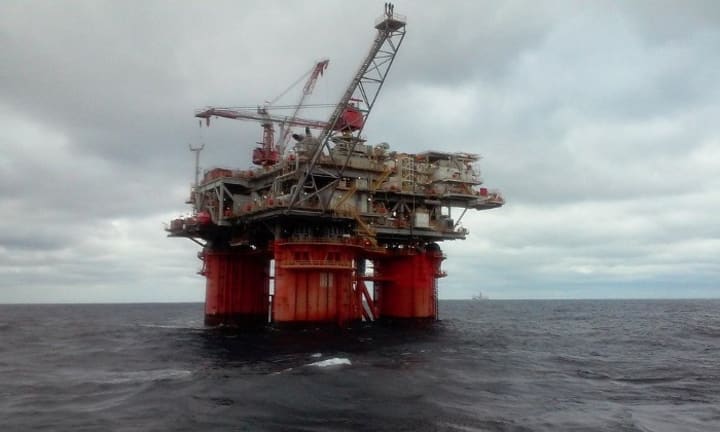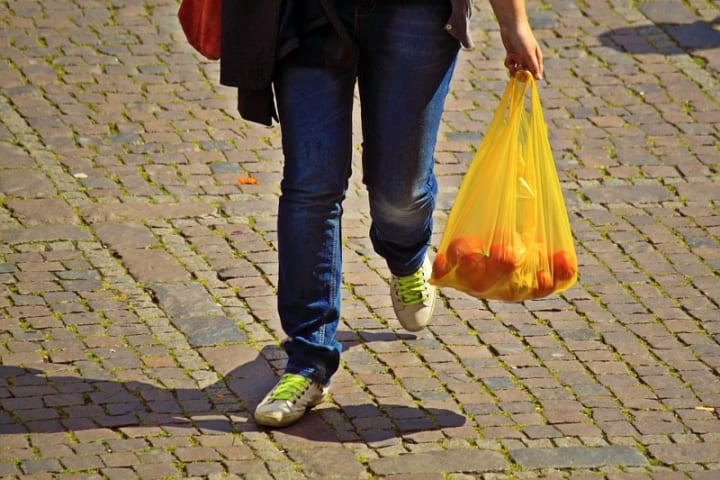Things Average Joes Can Do To Change Oil Consumption And Stick It Too Big Oil Companys
By Jason Morton

The same oil that we are told is in short supply is filling the oil companies bank accounts at incredible rates. Oil companies are reporting record-breaking profits.
- U.S. gas prices, which were already on the rise following pandemic-related changes in supply and demand, hit a new price per gallon high on March 8 that hasn’t been seen since July 2008.
- The price increase was partly attributed to the invasion of Ukraine as Western countries imposed economic sanctions on Russia for its aggression.
- Several major oil companies — Exxon, Chevron, BP, and Shell — reported record-breaking profits before the invasion.
When the President of the United States signed an order banning Russian oil imports he started taking the stance that he couldn’t do much about the rising price of gas and how it affected the American people. He sent a message that he wants to blame Russia. However, Russian oil imports accounted for about 8% of overall oil imports by the United States with 3% being crude oil. That doesn’t amount to enough to put a big drain on the supply.
Prices were already on the rise in the months and years leading up to the Russian invasion of Ukraine. By the time Biden had been in office for just a year, the average price of gasoline at the pump had risen a dollar, as oil companies tried to make up for the losses related to the pandemic. Factoring in damaging energy policies by the current administration, the expectation by investors that the supply would be less than the demand and prices would rise, and oil companies lowering production to increase prices and profits and we were already having it stuck to us at the pumps.

What Can You Do To Stick It Too Big Oil
As big oil sticks it to the consumers, causing prices to rise in nearly every aspect of our lives, what can we do to stick it back to them? One person can do very little.
As a large group of people, just in the United States, there’s plenty that we could do if we were to agree to work together. Consider the number of things that are derived from the oil that we use, the very same oil that goes into our vehicles. Of course, I’m speaking about plastics. However, there are many other products that come from the same crude and petroleum products that are imported into the country to fuel our lives, heat our homes, and deliver our goods.
Stop Using Single-Use Plastic Bags
Plastic bags, such as those used in Walmart stores, grocery stores, and convenience stores, are cheaply made, easily accessible, and derived from fossil fuels. There are some unsettling facts about single-use plastic bags that should make everyone want to cease their use, but with the prices of fossil fuels (oil) being so ridiculously high and the supply is controlled by people making record profits, we could slow down the consumption of oil by stopping the use of single-use plastics.
Here are some great facts about single-use plastics and why we should stop their use if nothing more than to free up barrels of oil for other things.
- Americans use 100 billion plastic bags a year, which require 12 million barrels of oil to manufacture.
- Americans use an average of 365 plastic bags per person per year. People in Denmark use an average of four plastic bags per year.
- It only takes about 14 plastic bags for the equivalent of the gas required to drive one mile.
- In 2015 about 730,000 tons of plastic bags, sacks and wraps were generated (including PS, PP, HDPE, PVC & LDPE) in the United States, but more than 87% of those items are never recycled, winding up in landfills and the ocean.
- About 34% of dead leatherback sea turtles have ingested plastics.
- The plastic typically used in bottles, bags, and food containers contains chemical additives such as endocrine disruptors, which are associated with negative health effects including cancers, birth defects, and immune system suppression in humans and wildlife.
- It takes 1,000 years for a plastic bag to degrade in a landfill. Unfortunately, the bags don’t break down completely but instead photo-degrade, becoming microplastics that absorb toxins and continue to pollute the environment.
- Chemical leachates from plastic bags impair the growth of the world’s most important microorganisms, Prochlorococcus, a marine bacterium that provides one-tenth of the world’s oxygen.
- There were 1.9 million grocery bags and other plastic bags collected in the 2018 International Coastal Cleanup.
- In 2014 California became the first state to ban plastic bags. As of March 2018, 311 local bag ordinances have been adopted in 24 states, including Hawaii. As of July 2018, 127 countries have adopted some form of legislation to regulate plastic bags.

Every trip to Walmart, or most shopping centers, we drive our cars to get there, and then we use oil just to carry our goods back to our cars. It's convenient in the short term, easy when you're in a hurry, and what's offered. However, if more people used reusable shopping bags or the use of single-use plastics was banned, we'd consume a minimum of 12 million barrels less oil every year.
According to the Earth Policy Institute, Worldwide, a trillion single-use plastic bags are used each year. That's nearly 2 million each minute. The energy wasted to make 12 plastic shopping bags could fuel a car for one mile.
What other products that are consuming our oil resources do you use? Which ones are considered convenience products, the ones that you could live without?
Oil's Use To Make Plastic Water Bottles
Plastic water bottles are made from a petroleum product called polyethylene terephthalate, or PET. The production of plastic water bottles requires enormous amounts of fossil fuels to make and transport to stores. Sadly, only 30% of plastic water bottles used in the United States are recycled.
Production of plastic water bottles requires 17 million barrels of oil per year and is on the rise. That's close to the amount of oil that it would take to produce gas to fill one million cars per year. With that being a US figure, worldwide production could fill tens of millions of cars per year, from only the oil used in producing PET plastic water bottles.
Worldwide there are more than 100 million plastic bottles consumed per day. The plastic bottles contain toxins that have been linked to human ailments, not to mention their poison to the ecosystems in the oceans and lakes. Chemicals found in plastic water bottles have been linked to obesity, diabetes, and cancer. One such compound in the bottles, Antimony, is known to cause dizziness, depression, and even death.
While plastic bottles may be BPA-free, other chemicals in the bottles, such as Phthalates, can seep into the water and cause problems with your health.
Bottled water is costing us millions of barrels of oil per year. A person may spend $350 to $400 per year on plastic water bottle products, and the same amount of water from the tap costs less than a dollar. If you have concerns about water quality, here are examples of water products to filter the water in your tap.
Conclusion On Oil Prices And What We Can Do
There are hundreds of products that people use in their everyday lives that are directly derived from fossil fuels (petroleum and crude oil) and many of the people can make a conscientious choice to use less of, or to stop using altogether.
The next time you're going for that convenient bottle of water, remember that a reusable bottle would both save you money and make you a part of the solution. That's a solution on two fronts, the supply of oil and the environment. Being cognizant of what products you use that are derived from oil is another decision that we all need to make. Many of the chemicals we depend on for simple ailments are actually derived from fossil fuel by-products, like antihistamines.
About the Creator
Jason Ray Morton
I have always enjoyed writing and exploring new ideas, new beliefs, and the dreams that rattle around inside my head. I have enjoyed the current state of science, human progress, fantasy and existence and write about them when I can.






Comments
There are no comments for this story
Be the first to respond and start the conversation.